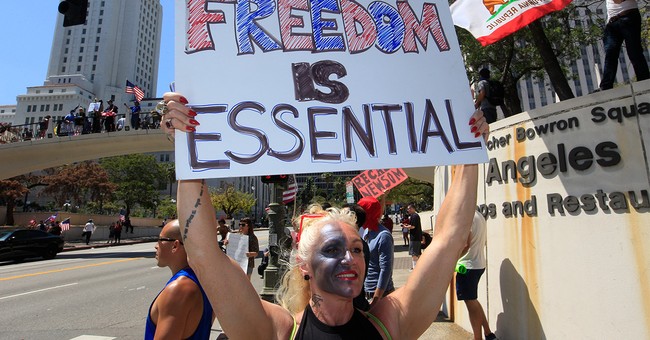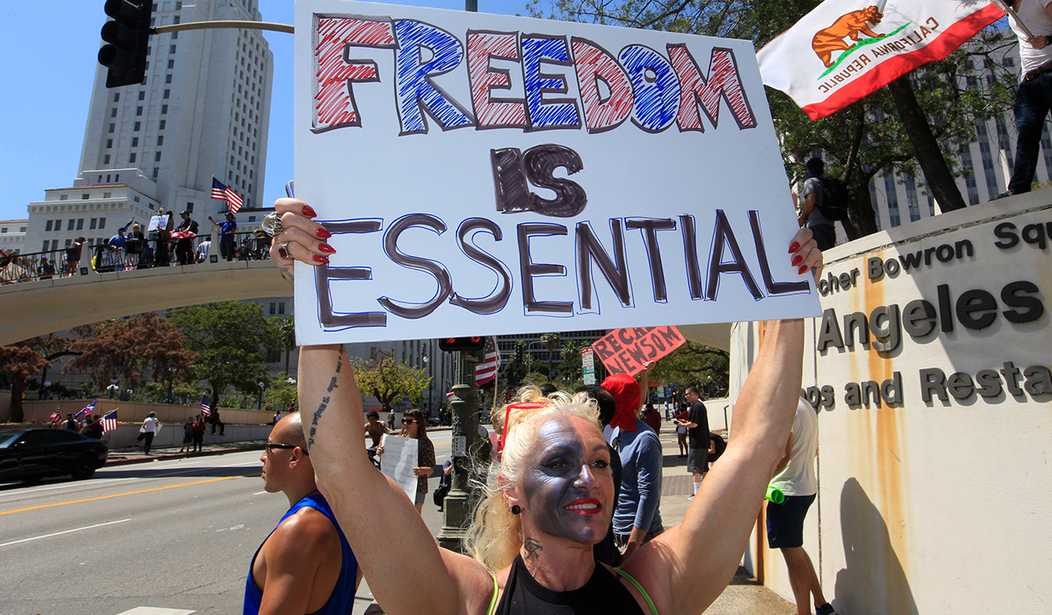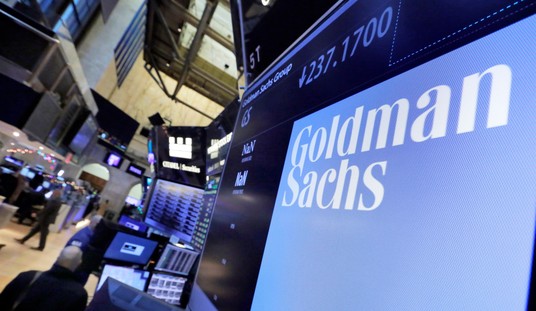
I used to say it a lot on my television and radio shows over the years: if we are not careful, America will relive its 1960s moments, right now in the 21st century.
I expressed concerns that in the shadows of 9/11, the War on Terror, several near-misses of terroristic attacks on our soil, and a horrible collapse of the economic system, our inability to cleave to common bonds and work through domestic differences would make us more tribal in identity and – dangerously – more vulnerable globally.
One could see it. The divisiveness that drove politics around our efforts in the Middle East, from electoral campaigns to military ones. During the era of “America’s first post-racial president”, we saw that, perhaps, we were doomed to another run through yesteryear. Tear gas clouds in the streets of America. Marches throughout the cities of our nation to oppose unconstitutional practices. Debates over a rebel flag decades after the war was lost from both sides of the argument. Abuses of power from the highest levels of government. Armed protesters sitting in crowds where an American president is speaking, while others show their anger through an assortment of ways. Fights breaking out at presidential rallies, with malice hurled in the form of eggs and bottles.
2020 has shown us that we continue to head in the wrong direction. This is not just because of the pandemic’s impact. During some of our greatest challenges, it is because we are woefully unwilling to set aside our worst tendencies and extol the best values we share. Like the ‘60s, we seem more willing to tear ourselves apart – even during a pandemic and the unemployment calamity that it has yielded – than persuade and uplift in any manner that resembles Reagan’s post-recession optimism or JFK’s “…ask not what your country can do for you…” mantra.
I understand the anxiety, though.
From coast to coast, Americans see that we are losing our democracy and our collective freedom. If there is one underlying, oft-overlooked trait in today’s culture, it’s that – and it’s across the board.
Here are two of many examples.
Look at the pushback during the pandemic. The frustration comes not from Americans being asked to take bold steps. Americans have always taken unusual steps during times of crisis – from rationing food during two world wars to sacrifices of material resources such as rubber and aluminum. However, continued inconsistencies in data analysis, risk analysis, and decisions on how to deal with businesses during the crisis have led to increased mistrust. The wanton disregard for transparency has put many Americans on high alert concerning their liberties. Further, the communistic “do as I say, not as I do” approach to observing “shelter-in-place” has halted many people’s willingness to acquiesce. Instances include: a county executive ignoring lockdown orders and crossing state lines; a governor’s family-owned business remaining open despite similar businesses being shuttered during the height of the pandemic shutdowns; a state health director ordering coronavirus-positive patients into nursing facilities, only to remove her mother from such a facility into a hotel; and another governor’s spouse seeking special favors during a shelter-in-place order. Couple this haughtiness with crippling job losses and the inability of many to access unemployment benefits and it is clear: without freedom of information and rule of government through the consent of the people, tensions will remain high.
That threat to freedom also exists in the streets of Minneapolis right now, just as it did in the streets of New York City, South Carolina, Pittsburgh, and elsewhere over recent years. The abhorrent and un-American tactics we see in the treatment of American citizens being denied their state and constitutional rights under the tenet of innocent until proven guilty has taken millions to the breaking point. Just as pandemic-driven Americans feel the impact of COVID19-related policies on their freedom, these Americans express concerns over their loss of freedom as well. Everything from economic disparities and education gaps to police interactions (i.e., from initial contact to arrests) and COVID-19 impacts seems to be trending towards a less-equal and less-free society for them. And in a society where their “advocates” have called them “trained chimpanzees” and their allies are questioning the need to forgive in the aftermath of tragedies, we risk heading down a path akin to our 1960s unrest.
People can feel that loss, yet many do not understand why we are losing our democracy and freedom. Thankfully, the worst of our recent past can be avoidable if we simply recall and embrace the power and fullness of freedom – especially during these 2020 challenges.
Through economic hardships, political conveniences, and civic upheaval, we have willingly bargained away the essence of freedom for a substitute that does not match our Constitution – a document that defends God-given rights, not affords government-granted ones.
Freedom is not conditional regardless of the circumstances. We cannot continue to have a free society where decisions on domestic matters and healthcare crises are made (with both good and horrific results) within a black box of secrecy driven away from millions. Freedom is not partial. We cannot continue to have a free society when the definitions and applications of “law and order” teeter on the description of an alleged assailant and determines how that American will be engaged. In fact, freedom – in its ideal form – is radically stable, even amid inconveniences or diverging perspectives. It is a concept that allows us to stand firm in our convictions, know that the law is empowering and valid for all citizens, and understand that truth is a constant in our daily interactions, not a variable. It is a lifeblood, not an accessory. It is either universally available or we are all in on the joke. Right now, we are paying the price for ignoring this truth.
Only a truly free people can overcome the challenges that America faces right now. We must be free enough to trust each other, be honest with each other, defend each other, and uphold justice for each other. We are facing the 1910s, ‘20s, and ‘30s within 5 months, complete with racial strife, a global pandemic, an employment crash, threats of war, and political upheaval. To avoid the pains of the 1960s and the downturn of the 1970s, we need to recapture the freedom that we used to have in America – or, at the very least, the essence of it that we claim we always aspired to.














Join the conversation as a VIP Member